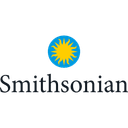This course is part of Smithsonian: Teaching with Museum Objects.
This innovative course empowers educators to use museum collections as tools for teaching civic engagement and democratic values. Through exploring six distinct Smithsonian collections, participants learn how to leverage museum objects to help students understand and engage with democratic principles. The course introduces the Smithsonian Learning Lab, a free online platform for accessing digital museum resources and creating interactive learning experiences. Educators gain practical strategies for incorporating museum resources into their teaching to promote deeper thinking and cross-disciplinary learning.
Instructors:
English
English
What you'll learn
Master the use of Smithsonian Learning Lab for accessing digital museum resources
Develop strategies for teaching civic engagement through museum objects
Create interactive learning experiences using digital museum collections
Integrate museum resources across different subject areas
Engage students in deeper thinking about democracy and civic responsibility
Skills you'll gain
This course includes:
PreRecorded video
Graded assignments, Exams
Access on Mobile, Tablet, Desktop
Limited Access access
Shareable certificate
Closed caption
Get a Completion Certificate
Share your certificate with prospective employers and your professional network on LinkedIn.
Created by
Provided by

Top companies offer this course to their employees
Top companies provide this course to enhance their employees' skills, ensuring they excel in handling complex projects and drive organizational success.





Module Description
The course focuses on integrating museum resources into educational practices to promote civic engagement. Participants explore six different Smithsonian collections and learn practical teaching strategies using the Smithsonian Learning Lab platform. The curriculum emphasizes how museum objects can deepen student understanding of democracy and inspire civic participation. Through hands-on activities and demonstrations, educators learn to create interactive learning experiences that connect museum resources to classroom content across various disciplines.
Fee Structure
Individual course purchase is not available - to enroll in this course with a certificate, you need to purchase the complete Professional Certificate Course. For enrollment and detailed fee structure, visit the following: Smithsonian: Teaching with Museum Objects
Instructors

3 Courses
Educational Innovation Leader and African American History Education Specialist
Candra Flanagan is the staff lead for the Teaching and Learning unit of the Education Department at the National Museum of African American History and Culture. In this current role she oversees the development of programming and resources to assist educators in incorporating African American history in their classroom; researches and creates educational publications for use by the general public and educators; and strategizes the role of NMAAHC in the professional development of educators. Candra is dedicated to establishing research-based, audience-appropriate K-12 initiatives for educators and students. With a degree in History from the University of Maryland College Park, a degree in Social Foundations of Education and advanced coursework Educational Policy from the University of Virginia, she is passionate about the intersection between formal and informal learning as well as cultivating and encouraging life-long learning in educators.

3 Courses
Distinguished Museum Education Leader and Youth Programs Innovator
Dr. Orlando Serrano serves as Manager of Youth and Teacher Programs at the Smithsonian's National Museum of American History, where he leads innovative educational initiatives and professional development programs. His extensive academic background includes a Ph.D. in American Studies and Ethnicity from the University of Southern California, with research focusing on race, space, power, and the built environment in the Americas, supported by prestigious Ford Foundation and National Science Foundation grants. In his role at NMAH, he develops comprehensive educational programming, including informal learning experiences for students, professional development workshops for educators, and curriculum content that aligns with national standards. His expertise spans teacher professional development, assessment, instruction, and educational technologies, which he applies to create engaging museum-based learning experiences. As co-chair of the Decolonization Working Group at the Center for Restorative History, he contributes to transformative initiatives in museum education while supporting Development, Programming, and Research & Action teams
Testimonials
Testimonials and success stories are a testament to the quality of this program and its impact on your career and learning journey. Be the first to help others make an informed decision by sharing your review of the course.
Frequently asked questions
Below are some of the most commonly asked questions about this course. We aim to provide clear and concise answers to help you better understand the course content, structure, and any other relevant information. If you have any additional questions or if your question is not listed here, please don't hesitate to reach out to our support team for further assistance.



